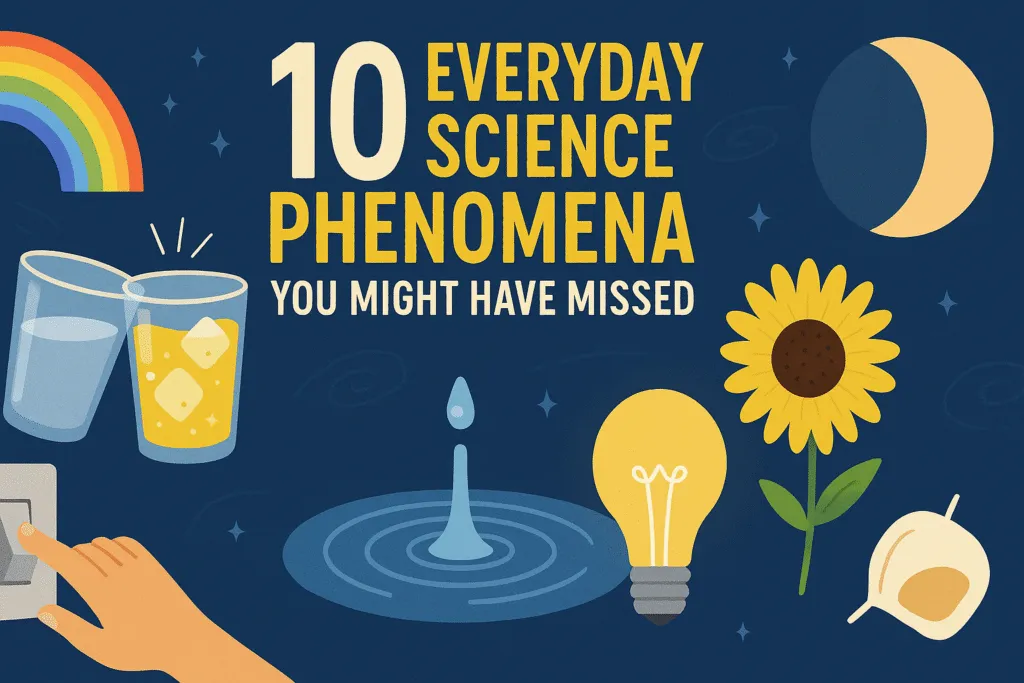Introduction
Many people think sleep is just downtime—a pause button for the body and mind. But in reality, something incredible is happening inside you while you rest. If you’ve ever wondered what happens when you sleep, the answer goes far beyond just closing your eyes and waking up refreshed. Your body and brain get to work on critical functions that keep you healthy, alert, and emotionally balanced.
While you drift into sleep, your brain begins sorting through the day’s memories, deciding what to keep and what to discard. This natural “file management” system helps improve your focus and decision-making the next day. At the same time, your muscles begin to repair themselves, cells regenerate, and your immune system strengthens—helping you fight off illness more effectively.
Even your heart rate and breathing change during sleep. They slow down during deep sleep to help your body conserve energy, then spike slightly during dream-filled REM sleep, where the brain becomes almost as active as when you’re awake. Hormones like melatonin and growth hormone are also released, supporting your metabolism, mood, and physical recovery.
So, what happens when you sleep isn’t just important—it’s essential. Missing out on quality rest doesn’t just make you tired; it can weaken your memory, disturb your emotional balance, and even increase your risk of chronic diseases.
Understanding what happens when you sleep can help you see rest as more than just a routine—it’s your body’s secret weapon for staying strong, focused, and healthy. Sleep is essential for our overall health and wellbeing, as explained by the National Sleep Foundation, which highlights why we need sleep every night.
The Brain’s Nightly Cleanup Crew
When you finally drift off to sleep, your brain doesn’t just shut down—it switches into maintenance mode. One of the most fascinating parts of what happens when you sleep is the brain’s ability to clean itself. This process is led by what scientists call the glymphatic system, a kind of waste disposal network that becomes highly active only during deep sleep.
Throughout the day, your brain cells are hard at work thinking, reacting, and processing information. But all that activity leaves behind waste products, including harmful proteins like beta-amyloid, which have been linked to neurological disorders like Alzheimer’s. During sleep, the glymphatic system clears these toxins out—almost like your brain is taking out the trash.
This cleanup happens most efficiently during the deep stages of sleep, when brain cells shrink slightly to create more space between them. This allows cerebrospinal fluid to flow more freely through the brain tissue, flushing out waste and improving overall brain health. It’s a process that doesn’t happen nearly as well when you’re awake.
Another key part of the brain’s night shift is memory processing. While you sleep, your brain organizes and stores the important parts of your day. It decides what memories are worth keeping and moves them from short-term to long-term storage. That’s why a good night’s sleep often helps you remember things better the next day.
So, the next time you feel like sleep is just a break from life, remember: your brain is working overtime behind the scenes. This built-in cleaning crew is a big reason what happens when you sleep is so essential for your mental clarity, emotional balance, and long-term brain health.
Heart, Lungs, and Body Temperature During Sleep
While you sleep, your body goes into a state of calm—but that doesn’t mean it stops functioning. In fact, some of the most important internal adjustments take place quietly during the night. If you’re curious about what happens when you sleep, understanding how your heart, lungs, and body temperature change is key to seeing just how active your rest really is.
As you enter the deeper stages of sleep, your heart rate gradually slows down. This reduced activity gives your heart a much-needed break after a long day of pumping blood. Your blood pressure also drops, helping your cardiovascular system recover and recharge. This nightly reset is one reason why good sleep is so strongly linked to heart health.
At the same time, your breathing becomes more regular and slower. Your lungs still deliver oxygen, but your body doesn’t need as much of it when you’re resting. This efficient rhythm helps conserve energy and supports overall body function through the night. During REM sleep—the stage when you dream—your breathing and heart rate may briefly increase, mimicking patterns seen during wakefulness.
Another fascinating change is in your body temperature. Just before you fall asleep, your core temperature begins to drop slightly. This cooling effect helps signal to your brain that it’s time to rest. Lower body temperature also supports deep sleep by reducing overall metabolic activity, allowing your body to focus on repair and recovery.
These subtle but vital shifts in your body systems show that what happens when you sleep isn’t just passive rest. It’s a coordinated effort by your body to protect, restore, and prepare itself for the next day. Sleep isn’t a luxury—it’s part of your daily survival strategy.
Muscle Repair and Cell Regeneration
One of the most powerful benefits of sleep is something you don’t even feel happening—your body quietly heals itself. Among the most critical parts of what happens when you sleep is the repair and regeneration of muscles and cells. Whether you’re an athlete, a desk worker, or somewhere in between, your body uses sleep as a chance to recover from the physical wear and tear of the day.
As you drift into the deeper stages of sleep, especially slow-wave sleep, your body begins releasing growth hormone. This hormone plays a major role in repairing damaged tissues, building muscle mass, and strengthening bones. Tiny muscle tears that occur during daily movement or exercise are mended during this time, which is why consistent sleep is crucial for fitness and recovery.
It’s not just your muscles that benefit—your entire body is undergoing cellular maintenance. Skin cells regenerate, immune cells strengthen, and your body produces new proteins that help repair cell structures. Even wounds heal faster during sleep, thanks to improved blood flow and efficient cell turnover during the night.
This nightly regeneration is also important for slowing the aging process. Lack of sleep can speed up cellular damage and reduce your body’s ability to rebuild, leading to fatigue, dull skin, and a weakened immune response. On the flip side, when you consistently get quality rest, your body has the energy and time it needs to stay strong and resilient.
So, if you’ve ever wondered what happens when you sleep, know that your body is busy performing invisible but essential repairs. Sleep is your built-in recovery system—working quietly in the background to keep you feeling and functioning at your best.
Hormones That Work While You Sleep
Your body may be resting, but behind the scenes, a powerful team of hormones is hard at work. One of the most fascinating parts of what happens when you sleep is how your hormonal system kicks into action to support growth, recovery, mood, and even metabolism. These hormones follow your sleep cycles, making rest a crucial part of your overall well-being.
Melatonin is the first hormone to take the stage. As daylight fades, your brain starts producing melatonin, signaling your body that it’s time to wind down. This hormone helps regulate your internal clock and prepares you for sleep. Its levels rise in the evening and stay elevated through the night, helping you stay asleep. Melatonin, often called the sleep hormone, regulates our sleep-wake cycle and is well described by the Mayo Clinic.
Another key player is growth hormone. Released mostly during deep sleep, growth hormone is essential for muscle repair, cell regeneration, and even fat metabolism. It’s one of the main reasons why sleep is considered the body’s natural healing time. If you’re not getting enough deep sleep, your body may struggle to recover properly.
Cortisol, commonly known as the stress hormone, also follows a daily rhythm. While it remains low during sleep, it begins to rise in the early morning hours, helping to gently wake you up and prepare for the day ahead. A balanced sleep-wake cycle keeps cortisol in check—poor sleep, on the other hand, can throw it off and lead to fatigue or anxiety.
Other hormones like leptin and ghrelin, which control hunger and appetite, also adjust during sleep. When sleep is disrupted, these hormones can get out of balance, leading to increased cravings and weight gain.
Understanding what happens when you sleep reveals that your body is busy with hormonal fine-tuning. It’s not just about rest—it’s about resetting your entire internal system for better health.
The Immune System’s Boost at Night
One of the most underrated benefits of sleep is how it strengthens your body’s defense system. If you’ve ever wondered what happens when you sleep, here’s something remarkable—your immune system becomes more active and efficient. While your conscious mind rests, your body uses this downtime to protect you from illness and repair what’s been damaged during the day.
During sleep, especially in the deeper stages, your body produces and releases cytokines—proteins that help fight infection and inflammation. These cytokines act like messengers, directing immune cells to where they’re needed most. When you’re sick or stressed, your body actually demands more sleep to produce extra cytokines, which shows how closely sleep and immunity are connected.
In addition to producing cytokines, your immune system increases the activity of T-cells during sleep. These cells play a critical role in identifying and destroying infected or abnormal cells. Sleep gives them the time and conditions they need to operate efficiently without the constant demands of wakeful activity.
Studies also show that people who get quality sleep respond better to vaccines and recover faster from illnesses. On the flip side, poor sleep weakens immune response, leaving you more vulnerable to colds, infections, and even chronic inflammation.
So when you’re tucked in at night, your immune system isn’t taking a break—it’s running nightly maintenance, scanning for threats, and preparing your body to face another day. This behind-the-scenes work is a vital part of what happens when you sleep, proving that rest is one of your best natural defenses against illness.
What Happens If You Don’t Sleep Well?
Not getting enough quality sleep can have serious consequences for your body and mind. When you wonder what happens when you sleep and then think about the opposite—what happens when you don’t—it becomes clear how vital sleep really is for overall health.
Without proper sleep, your brain struggles to function at its best. Memory, focus, and decision-making abilities all decline. You may feel more irritable or stressed because your emotional regulation takes a hit. Over time, poor sleep can increase the risk of mental health issues like anxiety and depression.
Physically, lack of sleep disrupts important hormonal balances. For example, it raises cortisol, the stress hormone, which can lead to high blood pressure and weight gain. It also affects hormones that control hunger, often causing increased appetite and cravings for unhealthy foods. This imbalance can make it harder to maintain a healthy weight.
Your immune system also suffers. When sleep is limited or fragmented, your body produces fewer protective cytokines, making you more vulnerable to infections and slowing down recovery times. Chronic poor sleep is linked to increased risks of serious health conditions, including diabetes, heart disease, and stroke.
Additionally, sleep deprivation impacts your metabolism and insulin sensitivity, raising the risk of developing type 2 diabetes. It also interferes with muscle repair and cell regeneration, meaning your body can’t heal or recover properly after injury or exercise.
In short, what happens when you sleep is essential for keeping your body and mind in balance. Skipping out on rest doesn’t just make you tired—it affects nearly every system in your body. Prioritizing good sleep is one of the simplest yet most effective ways to support your long-term health and well-being.
Surprising Sleep Facts You Should Know
Sleep is something we all do, but many surprising facts about it remain unknown to most people. If you’re curious about what happens when you sleep, here are some interesting truths that highlight just how incredible this nightly process really is.
Did you know that during sleep, your brain can process information even better than when you’re awake? Studies show that sleep helps strengthen neural connections, making learning and memory consolidation more efficient. This means that the phrase “sleep on it” actually has a scientific basis!
Another surprising fact is that your body cycles through different stages of sleep about every 90 minutes. Each stage serves a unique purpose, from physical restoration to emotional regulation. Missing out on any stage can affect your overall health, which is why uninterrupted sleep matters.
Dreaming is another mysterious part of sleep. Most people spend about two hours per night dreaming, usually during REM sleep. Although dreams can feel random, some researchers believe they help process emotions and solve problems.
Interestingly, your body’s immune system actually ramps up its defenses while you sleep. This is why consistent sleep helps improve vaccine effectiveness and reduces the chances of getting sick.
Lastly, sleep patterns can change with age. Babies spend most of their time in REM sleep, while adults get more deep sleep early in the night. Understanding these changes can help you adjust your sleep habits to feel your best.
These surprising facts show that what happens when you sleep is far from simple. Sleep is a dynamic, vital process that supports nearly every aspect of your health—making it one of the most important parts of your daily routine.
Conclusion
Sleep is far more than just a break from our busy lives—it’s a complex and vital process that keeps our bodies and minds functioning at their best. Understanding what happens when you sleep reveals how your brain cleans out toxins, your heart and lungs slow down to recharge, and your muscles and cells undergo essential repair. Hormones work behind the scenes to regulate growth, mood, and appetite, while your immune system boosts its defenses to keep you healthy.
When you don’t get enough quality sleep, these important processes suffer, leading to problems like poor memory, weakened immunity, and increased risk of chronic diseases. That’s why prioritizing restful, uninterrupted sleep is crucial for long-term health and well-being.
By appreciating the incredible night shift your body performs every time you sleep, you can start treating rest not as a luxury, but as a necessary investment in your health. Good sleep habits can transform how you feel, think, and perform—day after day. So the next time you head to bed, remember that your body is hard at work, helping you stay strong, focused, and ready for whatever comes next.
Also Read: Proven Roadmap to Master Data Science for College Students 2025.
FAQs
Q1: How many hours of sleep do adults need?
Most adults need between 7 to 9 hours of sleep each night for optimal health and functioning. However, individual needs can vary slightly based on lifestyle and genetics.
Q2: What is REM sleep and why is it important?
REM (Rapid Eye Movement) sleep is the stage where most dreaming occurs. It’s important for emotional regulation, memory consolidation, and brain development.
Q3: Can lack of sleep affect my immune system?
Yes, insufficient sleep weakens your immune response, making you more susceptible to infections and slowing down recovery.
Q4: Why do I sometimes feel tired even after sleeping enough?
Factors like poor sleep quality, sleep disorders, stress, or an inconsistent sleep schedule can leave you feeling tired despite adequate hours of rest.
Q5: Do dreams have a purpose?
While the exact purpose of dreams is still being studied, many scientists believe dreams help process emotions and solve problems, contributing to mental health.
Q6: Is it normal to move or twitch during sleep?
Yes, occasional movements or twitches during sleep are normal and often occur during lighter stages of sleep.
Q7: How does sleep affect weight management?
Sleep regulates hormones that control hunger and appetite. Poor sleep can increase cravings and lead to weight gain.





























